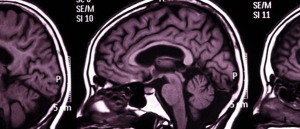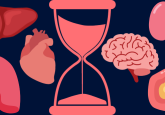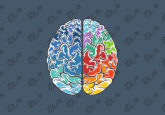One scan is all it takes: diagnosing Alzheimer’s disease

Researchers have trained a machine-learning algorithm to recognize signs of Alzheimer’s disease in magnetic resonance imaging of the brain.
Marianna Inglese, Eric Aboagye, and fellow researchers at Imperial College London (UK) have utilized magnetic resonance imaging (MRI) and machine learning to recognize features, such as the texture, shape and size, of different areas of the brain to assist with the early diagnosis of Alzheimer’s disease (AD). Although no treatment currently exists, the early detection of AD following a single MRI scan allows those affected to seek help with their symptoms and prepare for their future.
AD is massively prevalent in the UK and has quickly become a focus of research groups across the globe due to its devastating impact on an individual and their loved ones. Current diagnostic tests, such as memory and cognitive tests and brain scans, take a long time to plan, administer and analyze. However, training a machine-learning algorithm to automatically analyze a single MRI scan and pick out areas that are exhibiting similarities to an AD brain in just moments, accelerates the diagnostic process.
 Super-strength MRI identifies neurodegeneration in Parkinson’s disease
Super-strength MRI identifies neurodegeneration in Parkinson’s disease
A novel, ultra-powerful MRI scanner helps to pinpoint Parkinson’s disease and identify patients who are most likely to benefit from new treatments.
Researchers sectioned the brain into 115 areas, each of which was associated with 660 features. The algorithm was then trained to recognize when these brain features resembled AD characteristics from a single MRI scan. Adapted from a cancerous tumor classification algorithm, their algorithm was tested using MRI scans provided by the Alzheimer’s Disease Neuroimaging Initiative from more than 400 patients with early- and late-stage AD, patients with other neurological diseases and healthy brains. Additionally, current patients’ brain scans were also tested.
This MRI and machine learning diagnostic tool successfully predicted whether the patient had AD in 98% of cases. In 79% of patients, it was also able to deduce whether the patient had early- or late-stage AD. Lead researcher Eric Aboagye commented, “Currently no other simple and widely available methods can predict Alzheimer’s disease with this level of accuracy, so our research is an important step forward. Many patients who present with Alzheimer’s at memory clinics do also have other neurological conditions, but even within this group our system could pick out those patients who had Alzheimer’s from those who did not.”
Combining this machine learning technology with commonly used brain scanning techniques has the potential to alert people with signs of AD to their options, such as clinical trials of novel drugs or lifestyle changes, earlier than current diagnostics can. The algorithm has also demonstrated that there are parts of the brain that seem to be affected by AD that previously were not recognized as affected regions; further research can investigate the role these regions play in AD. Overall, this new technique for combining machine learning and MRI scans may take us one step closer to understanding AD and eventually finding an effective treatment.





